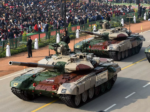Diplomatic Tensions Escalate as Indian High Commissioner Faces Protests in UK Gurdwara

Image Source: The Sentinel Assam
Recent events in the United Kingdom have highlighted growing tensions between India and certain sections of the Sikh community abroad, particularly those advocating for Khalistan, an independent Sikh state. The incident in question involved the Indian High Commissioner to the UK, Vikram Doraiswami, being prevented from entering a gurdwara in Scotland by pro-Khalistan Sikh activists. This incident comes amid a broader row between India and Canada, ignited by Canadian Prime Minister Justin Trudeau’s allegations of Indian involvement in the killing of a Khalistani extremist. In this article, we will delve deeper into the incident, its implications, and the broader context of the India-Canada dispute.
The Gurdwara Incident
On September 29th, 2023, Indian High Commissioner Vikram Doraiswami was scheduled to meet with the managing committee of the Glasgow Gurdwara on Albert Drive. However, a group of radical British Sikh activists believed to support the Khalistan movement, confronted him at the gurdwara premises. According to reports, they informed Doraiswami that he was not welcome, leading to a confrontation. In a viral video, one activist is seen attempting to open the car door of the High Commissioner, which was locked from the inside. Subsequently, the High Commissioner’s car left the gurdwara premises.
This incident raises questions about the extent to which the Khalistan issue is influencing diaspora politics and creating diplomatic challenges for India. While it is important to respect freedom of expression and the right to protest, the incident is a reminder of the complexity surrounding this sensitive matter.
The India-Canada Row
The incident at the Glasgow Gurdwara is connected to a broader diplomatic dispute between India and Canada. It began when Canadian Prime Minister Justin Trudeau made explosive allegations regarding the killing of Khalistani extremist Hardeep Singh Nijjar in British Columbia on June 18, 2023. Trudeau suggested the “potential” involvement of Indian agents in the murder, leading to a strong and immediate denial from India, which labeled the allegations as “absurd” and “motivated.”
In response to Trudeau’s accusations, India expelled a senior Canadian diplomat, mirroring Ottawa’s expulsion of an Indian official over the Nijjar case. The situation escalated as the two countries exchanged diplomatic barbs.
External Affairs Minister S. Jaishankar, during an interaction in Washington, highlighted the long-standing issues between India and Canada. He cited Canada’s alleged permissiveness regarding terrorism, extremism, and separatist movements as the core of the problem. Jaishankar also emphasized the need for both nations to engage in dialogue to resolve their differences over the Khalistani separatist’s death.
The Broader Context
Tensions between India and Canada have been simmering since Indian Prime Minister Narendra Modi expressed concerns about rising secessionist activities in Canada during a bilateral meeting on the sidelines of the G20 summit in Delhi. Reports suggest that India had previously handed Trudeau a list of nine Khalistani operatives allegedly operating from Canadian soil.
Furthermore, concerns have arisen about pro-Khalistan elements in Canada luring Sikh youth to the country by sponsoring their visas, with the suspected intention of using them to further their agenda on Canadian soil.
Conclusion
The incident involving the Indian High Commissioner’s visit to a gurdwara in Scotland underscores the complex interplay between diaspora politics and diplomatic relations. It also serves as a manifestation of the broader diplomatic tensions between India and Canada. While the exact nature of Indian involvement in the killing of Hardeep Singh Nijjar remains a matter of dispute, it is essential for both nations to engage in constructive dialogue to address their differences and prevent further escalation of tensions. In an interconnected world, diplomatic solutions must take precedence over confrontations and allegations to maintain peace and stability.
Team Profile

- News Writer
- Harshit Tokas is a Political Science and International Affairs Post-Graduate with a passion for understanding and analyzing complex political landscapes. Skilled in research, data analysis, and policy development. Eager to contribute his knowledge and insights to drive positive change.
Latest entries
 English1 December 2023Ambati Rayudu Backs Ruturaj Gaikwad as a Future Leader of Indian Cricket
English1 December 2023Ambati Rayudu Backs Ruturaj Gaikwad as a Future Leader of Indian Cricket English1 December 2023Changing Tide: Pujara and Rahane Omitted from South Africa Tour Squad
English1 December 2023Changing Tide: Pujara and Rahane Omitted from South Africa Tour Squad Defence1 December 2023India Greenlights Procurement of Advanced Military Assets in Multi-billion Defence Upgrade
Defence1 December 2023India Greenlights Procurement of Advanced Military Assets in Multi-billion Defence Upgrade English1 December 2023Delhi Government Pushes for Completion of Asia’s Largest Wastewater Treatment Plant
English1 December 2023Delhi Government Pushes for Completion of Asia’s Largest Wastewater Treatment Plant









